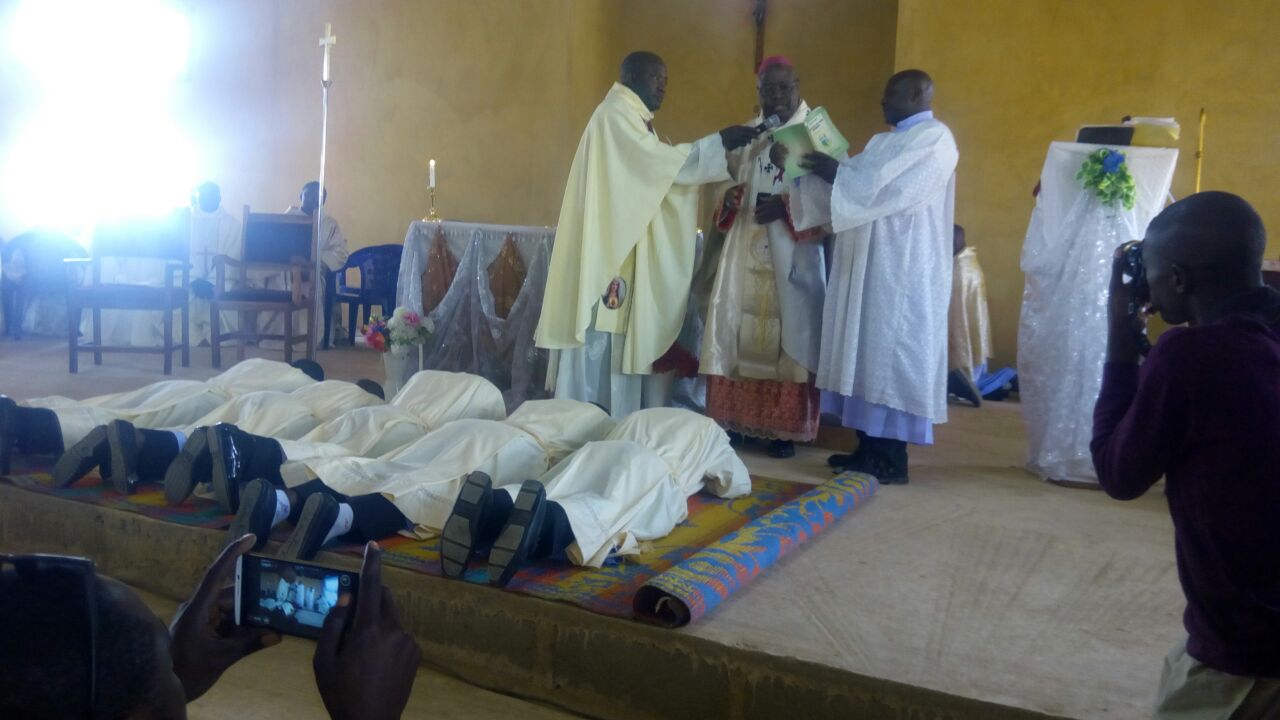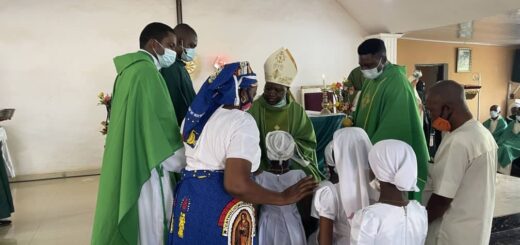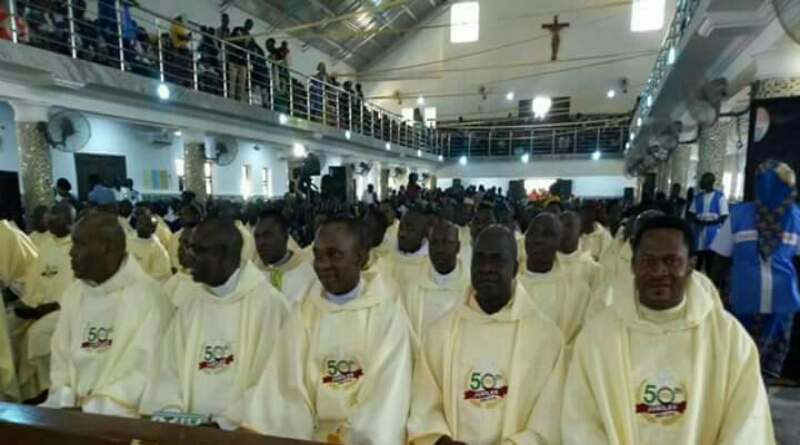Visiting The Sick
by ARCH BISHOP · March 23, 2021
Reflection by Archbishop I.A. Kaigama at Lugbe Deanery Cathedraticum, St. Francis’ Parish, Pegi. March 23, 2021,
Readings: Num. 21:4-9; Ps. 101(102): 2-3,6-21; Jn. 8:21-30
So far, in the Cathedraticum Masses, we have looked at four of the Corporal Works of Mercy, namely, feeding the hungry, giving drink to the thirsty, clothing the naked, and providing shelter for the homeless. Today, we turn our focus on the fifth corporal work of mercy, which is, to visit or comfort the sick.
One undeniable aspect of human existence is the reality of sickness and physical disability. Even the healthiest among us become ill now and then. In fact, the moment you are born, your body parts progressively degenerate. No wonder, hypertension, diabetes, arthritis, etc., are very common.
The sick are everywhere; in our homes, in the hospitals, and even on the streets. Every day we watch helplessly with pains in our hearts the sufferings of our brothers and sisters who are sick. Some families have even spent their entire savings trying to save their loved ones. In our own case in Nigeria, the situation seems to become worse with each passing day when you look at rural areas where health care is lacking or grossly inadequate, the shortage of personnel and lack of motivation for those who are responsible for the sick (Doctors or nurses must go on several strikes before the Government does the needful).
The world-wide sickness of Covid-19 has complicated matters and affected life-style. People are careful to avoid those who sneeze or cough, and if you feel feverish, even some health personnel begin to avoid you. This attitude towards sick people could result in depression and loneliness. Those with illnesses or contagious diseases are not to be stigmatized or avoided.
To visit the sick is an integral mission of the Christian given by Jesus. It was Saint Rose of Lima who said, “When we serve the poor and sick, we serve Jesus”. Healing the sick was the hallmark of Jesus’ ministry. At the centre of His life and mission was His exceptional care for the sick. Jesus demonstrated compassion, tenderness and care for all the sick and suffering. In Luke 4:38-41, Jesus healed Simon Peter’s mother in-law. After John the Baptist was put in prison, he sent some of His disciples to Jesus to find out if Jesus was really the Messiah. Jesus summed up His own ministry in His response to the disciples when He said: “Go back and report to John what you hear and see: The blind see, the lame walk, those who have leprosy are cured, the deaf hear, the dead are raised, and the good news is preached to the poor” (Matt 11:4-5).
Many today are sick and have no friends. Some are “sick at heart” from being lonely and forgotten; others are deprived of friendship, especially the socially isolated, the aged, home bound, and those who are perceived as public sinners. Our visit to the psychologically, mentally or physically sick is a fulfillment of Mt. 25:36: “I was sick, and you cared for me”. “If one member suffers, all the members suffer together” (1Cor. 12:26).
We must encourage people who are sick or dying to give them hope and assure them of God’s abiding presence. In our visit, we must not necessarily utter many words but must learn to be attentive and empathetic listeners (don’t increase their pain by suggesting God is punishing them or someone hates them).
Jesus in today’s Gospel says: “I do nothing on my own, but I say only what the Father taught me…I always do what is pleasing to Him,” (v. 28, 29). Visiting the sick is pleasing to the Father. Like Peter and John told the crippled man at “the Beautiful Gate”, silver and gold we may not have, but we certainly bring the consoling presence of God each time we visit the sick (cf. Acts 3:6).
The first reading from the book of Numbers 21:4-9, speaks of the impatience of the Israelites shortly after their departure from the land of Egypt. We too must be careful not to allow our sickness drive us into impatience, bitterness and hopelessness, because God knows and understands our situation even better than we do. God rewards the heart that remains grateful in the midst of difficulties.
Let us look up and fix our gaze continuously on Jesus on the cross and the Blessed Sacrament. As Moses lifted up the serpent in the desert, Jesus is lifted up for us. Cast all your worries, anxieties and pains upon Him. Each time at Mass look up to the consecrated host and say, “Lord, I am not worthy that you should enter under my roof, but only say the word and my soul shall be healed”, let us be confident and expectant that we can get healing for our body and soul.
Priests have a duty, through the sacrament of the anointing of the sick, to express God’s compassion for humanity. In the past it was called “extreme unction”, and was understood as a spiritual comfort to the sick in the face of imminent death. Today we speak in terms of the “anointing of the sick”.
Let us intensify efforts to show solidarity with the sick, the elderly and the lonely and those discriminated against in our country because of religious, ethnic or political prejudices.
Jesus the gynaecologist, the ophthalmologist, the ear, nose and throat doctor (otolaryngologist), the paediatrician, the cancer Doctor (oncologist), etc., hear our prayer and restore to bodily, mental or spiritual health all of us who are sick. Amen.




